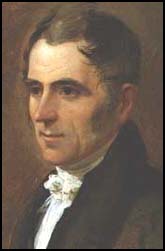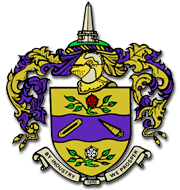THE
FIELDEN TRAIL
INTRODUCTION
In the autumn of 1983 I had never even heard of the Fieldens of Todmorden. Perhaps the name may once have rung faintly at the back of my mind in connection with the '0' Level History classes of far off schooldays; but if it ever did, it had certainly been consigned to oblivion long ago. Even if I had, in the course of my casual reading ever encountered the name, I would never have thought of it as the potential subject for a book.
On 19th January 1984 1 was chatting with one of my neighbours in Mytholmroyd, Kevin Hoyle. He knew of my interest in local history and told me that he had temporarily acquired some old papers from an acquaintance, papers that I might perhaps find interesting? The material, he informed me, related to the Fielden Family of Todmorden, who were local manufacturers. I was interested, though more casually than seriously, and told him that I would certainly like to have a look at the stuff, even though the Fieldens and their world were quite unknown to me.
That evening he presented me with a rather battered looking manilla envelope crammed full of old papers. Some were older than others, the most venerable of them being a parchment dating from the reign of James I, an indenture referring to a marriage settlement involving one Ralph Elmston, yeoman of Kent. Here was treasure indeed! This parchment, however, proved to be the odd one out, for, with the sole exception of an 18th century copy of 'The Spectator', all the other documents were connected with the radical political movements of the early 19th century, The 'Ten Hours' Movement and the Fieldens. For the most part, the papers were political pamphlets produced by the Lancashire Central Short Time Committee, usually referring to the efforts of John Fielden M.P. in attempting to obtain a 'Ten Hours Bill'. There was a copy of Cobbett's Political Register, and various tracts on various subjects published by John Fielden's sons. But most interesting of all were the letters, which (with the sole exception of one written by Samuel Fielden whilst in Liverpool) were all written by John Fielden's second daughter, Mary, mainly to her brother John, who was at boarding school in Liverpool at the time (1836).
Not long after receiving these papers I mentioned them to my sister-in-law Esther, who had recently completed an '0' Level History course at Bradford College. I was surprised to find that she had not only heard of the Fieldens, but wished dearly that she could have had access to material such as this when she was on the course! 'Did I not know' she informed me, 'that John Fielden was an M.P. and a famous radical reformer, a champion of the workers who fought to improve working conditions in factories and mines?' John Fielden was, I was soon to discover, far more than just a mere manufacturer; I was indeed surprised to find out that the tatty looking envelope contained material of immense historical interest.
I quickly realised that all this material belonged in a public record office, and not in a battered envelope in someone's bottom drawer. Here was an untapped source of local history of potential historical value. I later discovered that not even the local libraries could provide all of the pamphlets that were in this little hoard. And as for the letters - they were irreplaceable!
After a month or so of photocopying and recording information contained in the papers, I decided that it was about time I returned them to their rightful owner. I gave them to Kevin, who duly returned them. Shortly afterwards, Kevin, who worked at an old folks home in Rochdale, left his job; and when, sometime later, in the throes of writing The Fielden Trail I asked him for the name of his mysterious `acquaintance' who lent him the papers, I was stunned to find that he could not remember!
I can but hope that the papers (wherever they are) will eventually resurface and find their way into local archives, where they can be well looked after and further studied by anyone wishing to further explore the history of the Fieldens of Todmorden. The Librarian at Todmorden would particularly like to see the papers, and I can only hope that if this book catches the attention of their owner, he will see fit to come forward and take steps to protect these interesting documents from further deterioration.
So it was that Mary Fielden's letters left my life as mysteriously as they had entered it. But she had done her work: in me she had kindled an interest in finding out about her and the great and influential family of which she was a part. With old maps and a notebook I laced up my boots and set off in search of the Fieldens of Todmorden. The result of that quest is this book.
Jim Jarratt
Mytholmroyd. 1988.

John Fielden M.P.

Copyright Jim Jarratt.
2006 First Published by Smith Settle 1989
On 19th January 1984 1 was chatting with one of my neighbours in Mytholmroyd, Kevin Hoyle. He knew of my interest in local history and told me that he had temporarily acquired some old papers from an acquaintance, papers that I might perhaps find interesting? The material, he informed me, related to the Fielden Family of Todmorden, who were local manufacturers. I was interested, though more casually than seriously, and told him that I would certainly like to have a look at the stuff, even though the Fieldens and their world were quite unknown to me.
That evening he presented me with a rather battered looking manilla envelope crammed full of old papers. Some were older than others, the most venerable of them being a parchment dating from the reign of James I, an indenture referring to a marriage settlement involving one Ralph Elmston, yeoman of Kent. Here was treasure indeed! This parchment, however, proved to be the odd one out, for, with the sole exception of an 18th century copy of 'The Spectator', all the other documents were connected with the radical political movements of the early 19th century, The 'Ten Hours' Movement and the Fieldens. For the most part, the papers were political pamphlets produced by the Lancashire Central Short Time Committee, usually referring to the efforts of John Fielden M.P. in attempting to obtain a 'Ten Hours Bill'. There was a copy of Cobbett's Political Register, and various tracts on various subjects published by John Fielden's sons. But most interesting of all were the letters, which (with the sole exception of one written by Samuel Fielden whilst in Liverpool) were all written by John Fielden's second daughter, Mary, mainly to her brother John, who was at boarding school in Liverpool at the time (1836).
Not long after receiving these papers I mentioned them to my sister-in-law Esther, who had recently completed an '0' Level History course at Bradford College. I was surprised to find that she had not only heard of the Fieldens, but wished dearly that she could have had access to material such as this when she was on the course! 'Did I not know' she informed me, 'that John Fielden was an M.P. and a famous radical reformer, a champion of the workers who fought to improve working conditions in factories and mines?' John Fielden was, I was soon to discover, far more than just a mere manufacturer; I was indeed surprised to find out that the tatty looking envelope contained material of immense historical interest.
After a month or so of photocopying and recording information contained in the papers, I decided that it was about time I returned them to their rightful owner. I gave them to Kevin, who duly returned them. Shortly afterwards, Kevin, who worked at an old folks home in Rochdale, left his job; and when, sometime later, in the throes of writing The Fielden Trail I asked him for the name of his mysterious `acquaintance' who lent him the papers, I was stunned to find that he could not remember!
I can but hope that the papers (wherever they are) will eventually resurface and find their way into local archives, where they can be well looked after and further studied by anyone wishing to further explore the history of the Fieldens of Todmorden. The Librarian at Todmorden would particularly like to see the papers, and I can only hope that if this book catches the attention of their owner, he will see fit to come forward and take steps to protect these interesting documents from further deterioration.
So it was that Mary Fielden's letters left my life as mysteriously as they had entered it. But she had done her work: in me she had kindled an interest in finding out about her and the great and influential family of which she was a part. With old maps and a notebook I laced up my boots and set off in search of the Fieldens of Todmorden. The result of that quest is this book.
Jim Jarratt
Mytholmroyd. 1988.

John Fielden M.P.
